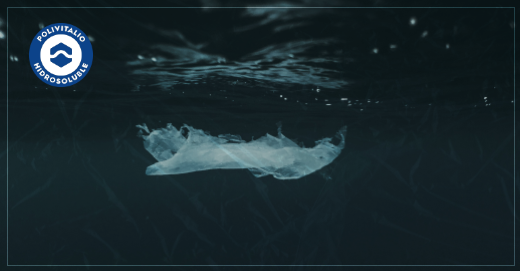![]()
Plastic bags are a relatively new product. Their use became popular worldwide around 1980, replacing other types of packaging. However, in a short time, it became a problem, along with the rest of the materials made of plastic.
In 1997, marine biologist Charles Moore accidentally discovered an accumulation of plastic in the North Pacific, later incorrectly referred to by the media as the “plastic island,” ignoring that, although composed of objects, microplastics are the main problem.
In this context, plastic bags are an environmental enemy, being generally used for single use and taking hundreds of years to degrade.
At Green Team, we created a real solution: biodegradable bags that are not harmful to nature.
We create bags that truly do not pollute
When plastic entered our lives, it presented itself almost like a magical material. It was very economical, kept drinks and food in good condition, and, due to its versatility, could be used to make a multitude of objects.
As the significant problems it caused to the environment became apparent, from production to its difficult disintegration, alternatives were created with the intention of being less polluting. The same happened with plastic bags, with the particular problem that they are single-use items that are then discarded. One solution has been to ban their use; however, the ban is not widespread or sometimes not respected. On the other hand, many supposedly eco-friendly products launched as alternatives to plastic bags also produce pollution.
Faced with this situation, at Green Team, we set out to find a real solution by creating 100% pollution-free biodegradable bags. Here, we’ll tell you why they are a true alternative to plastic bags.
Polivitalio®, the star material of our biodegradable bags
At Green Team, we succeeded in creating biodegradable bags thanks to Polivitalio®, a material that truly replaces plastic without causing pollution. But what makes Polivitalio® a special biodegradable material? Primarily, three characteristics: it is water-soluble, compostable, and biodegradable. Thanks to these qualities, it is a material that does not pollute.
Let’s go step by step to understand this ingenious material.
Water-soluble
Polivitalio® is a material that dissolves in water at controlled temperatures. This means that your bags will not dissolve with simple water contact, for example, from rain; a special temperature is required for that. In hot water, it disappears in seconds; you can try it at home! They also dissolve and biodegrade in the sea after 45 days, without human intervention.
But being water-soluble is not enough; they also need to be biodegradable and compostable to be eco-friendly.
Biodegradable
This is the main feature that makes our bags environmentally friendly. For a bag to be biodegradable, it is not enough for it to be made of natural ingredients; it needs to decompose into the chemical elements it is made of without leaving toxic residues, thanks to the natural intervention of organisms, such as bacteria.
Various laboratory tests certify that our Polivitalio® bags biodegrade in a short period and in different environments. In landfills, they take 22 days to biodegrade; on land, 90 days; and in the sea, 45.
Compostable
One of the advantages of our biodegradable bags is that they are compostable in both home and industrial compost, without leaving toxic residues.
When disposed of in an environment with organic waste, our bags disintegrate by 90% after twelve weeks. After six months, there will be few particles less than 2 millimeters that do not pose any harmful residue but, on the contrary, contribute nutrients to the soil.
Discover the presentations of Bax®, our biodegradable bags
The Bax® bags we produce with Polivitalio® have different presentations for various uses. You can find bags ideal for garbage and your dog’s waste, as well as bags for packing groceries, selling clothes in a boutique, and much more.
Learn more about our real solutions that contribute to improving the environment and plastic pollution!
Follow us on: Facebook, Instagram, Linkedin, y YouTube

